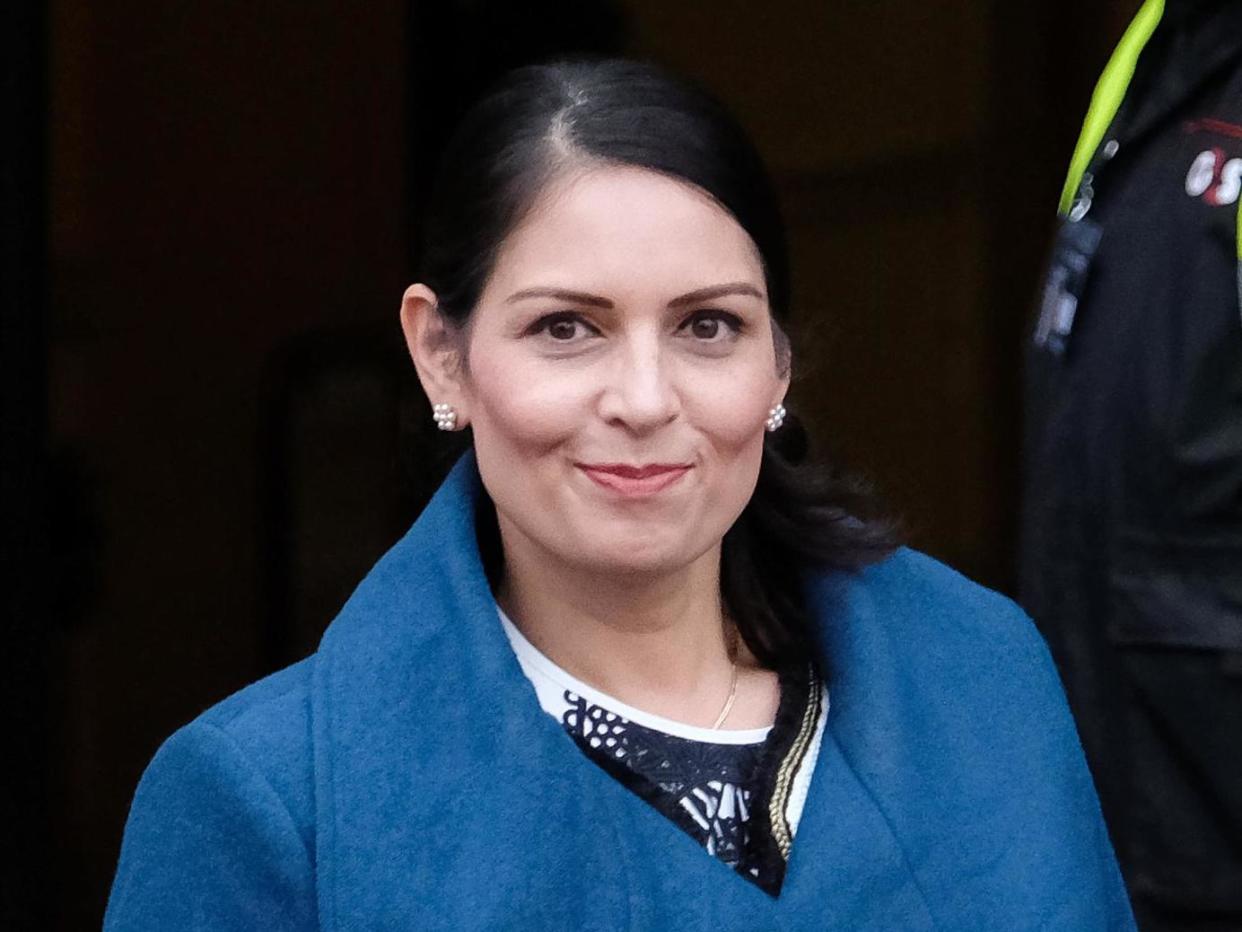It didn’t work out when Priti Patel ignored the civil service last time – and it certainly won’t now

When Priti Patel arrived at the Department for International Development after winning promotion to the cabinet, her civil servants lined the foyer at its HQ to give her a traditional welcome. They expected a short speech, but Patel headed straight to the lift, keeping her back to her disappointed officials when it failed to come.
Later, she fell out with senior staff, who felt she misled them about the holiday in Israel which cost Patel her job; she resigned after undisclosed meetings with Israeli officials.
Now relations between Patel and her officials at the Home Office are tense. I’m told she returned from her Christmas break with a “bee in her bonnet” about ousting a handful of senior civil servants. Now, according to The Times, she is trying to remove Philip Rutman, her permanent secretary, amid claims she has bullied and belittled officials in meetings and created an “atmosphere of fear”. The Home Office said today: “We have not received any formal complaints and we take the welfare of our staff extremely seriously.”
Patel’s allies admit she is a demanding boss – nothing wrong with that – but never unreasonable. They said: “The Home Office is dysfunctional and the current permanent secretary had presided over a sacking of a home secretary [Amber Rudd] and accidental deportations.”
The criticism of the Home Office is not new. John Reid, former Labour home secretary, once declared its immigration department “not fit for purpose”. Patel knows it is often a political graveyard; Theresa May was one of the few to get out alive. One Home Office official told me: “Priti Patel knows her own mind, her worldview. She does not like to hear any conflicting advice.”
This goes to the heart of the matter. The civil service’s job is not to say “yes, minister” but to flag up potential problems, for example when a policy is being developed. It’s the politicians’ right to overrule their officials. As Margaret Thatcher put it: “Advisers advise, ministers decide.”
This matters: Patel has reportedly clashed with her permanent secretary over their rival interpretations of the rule of law over the Extinction Rebellion protests in central London.
Patel was a surprise appointment as home secretary. When I got wind of it, fellow Westminster hacks took the mickey out of me, but my intel was right. I believed it was possible because of Boris Johnson’s admiration for Patel, and their strong bond forged on that infamous Vote Leave battlebus during the 2016 referendum. While Johnson wavered between Leave and Remain, there was no doubt whose side Patel would be on: when I first met her 25 years ago, she was a press officer for James Goldsmith’s Referendum Party, a trailblazer for Ukip.
One thing is sure in the current Home Office spat: Johnson will stand firmly by Patel, which could ultimately spell bad news for Rutnam. Normally, when a minister enjoying No 10’s support wants a permanent secretary out, the Whitehall machine finds a way to make that happen.
Johnson won’t lose sleep over the controversy. Dominic Cummings, still his most influential adviser, is very keen to shake up the civil service. While he worked for Michael Gove at the Department for Education, they had their battles with David Bell, the permanent secretary, and Bob Kerslake, the head of the civil service. Both were eventually eased out.
Cummings is right to think that Whitehall needs reform. But the dangers of a scattergun approach were illustrated when his appeal for “misfits and weirdos” to work in No 10 ended with the swift resignation of Andrew Sabisky, who jumped before he was pushed. The resignation of Sajid Javid was largely about Cummings’s determination to rein in the Treasury’s power, a long-standing goal.
There are times when it’s right for elected politicians and their aides like Cummings to tell obstructive civil servants: “just do it”. But there are also times when officials are within their rights to ask ministers to think again. The civil service is a vital part of the checks and balances in our system; it saves politicians from themselves more than they care to admit.
Johnson, Patel and Cummings should remember it – and that the vast majority of officials are loyal to the government of the day.
Johnson and his allies are riding high for now. But if they regard the civil service as the enemy within and wage permanent war with it, they will discover they have fewer friends at court when times inevitably get tough.
Read more
Patel hit by bullying row amid ‘atmosphere of fear’ at Home Office
Patel claim that ‘inactive’ will fill migrant jobs branded ‘clueless’
Priti Patel says there is ‘no such thing’ as dabbling in drugs
Tory ex-minister denounces immigration plans as ‘dog-whistle politics’
Watch the latest videos from Yahoo UK


